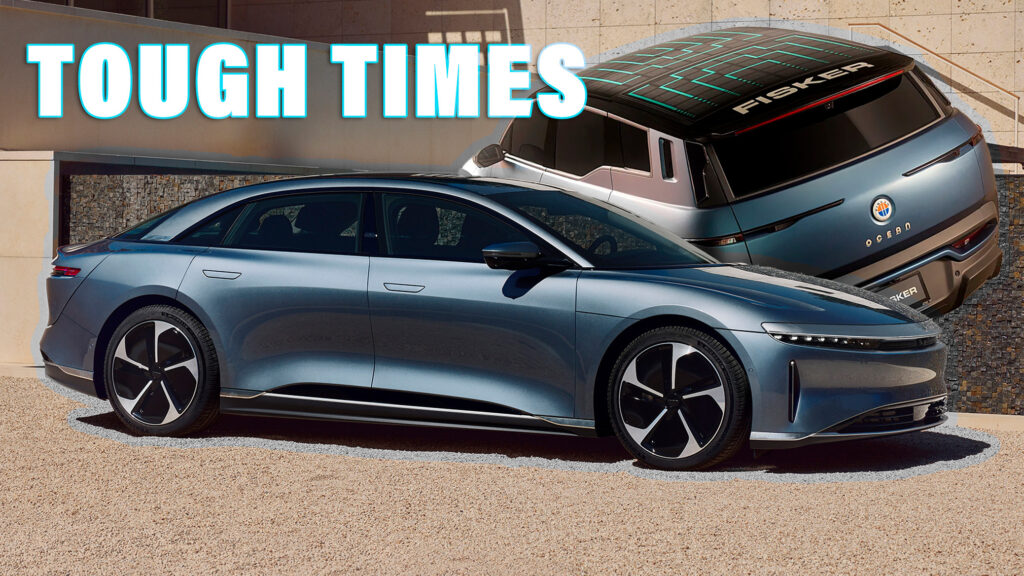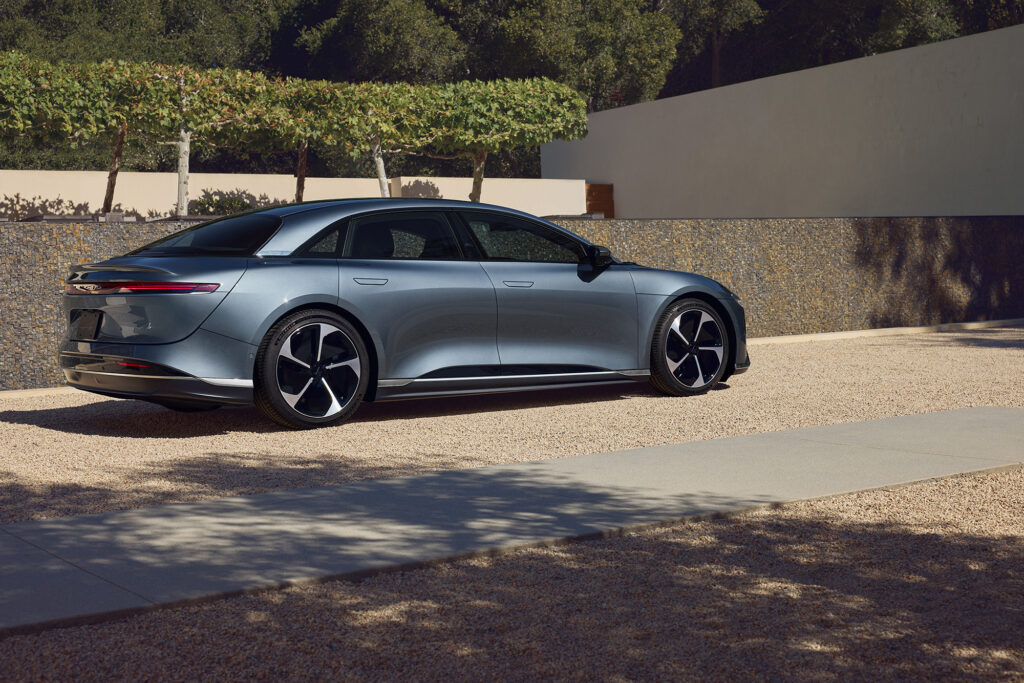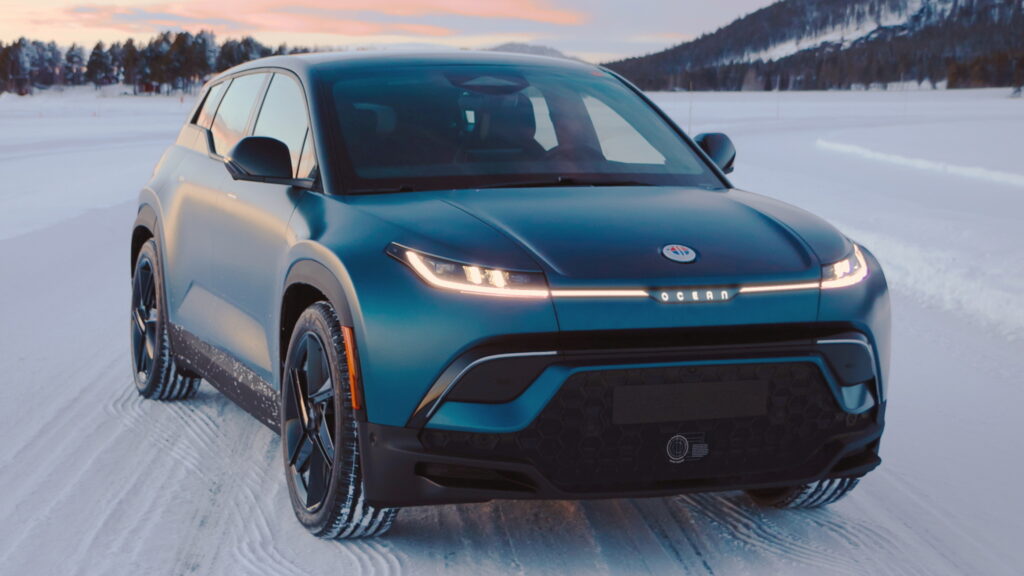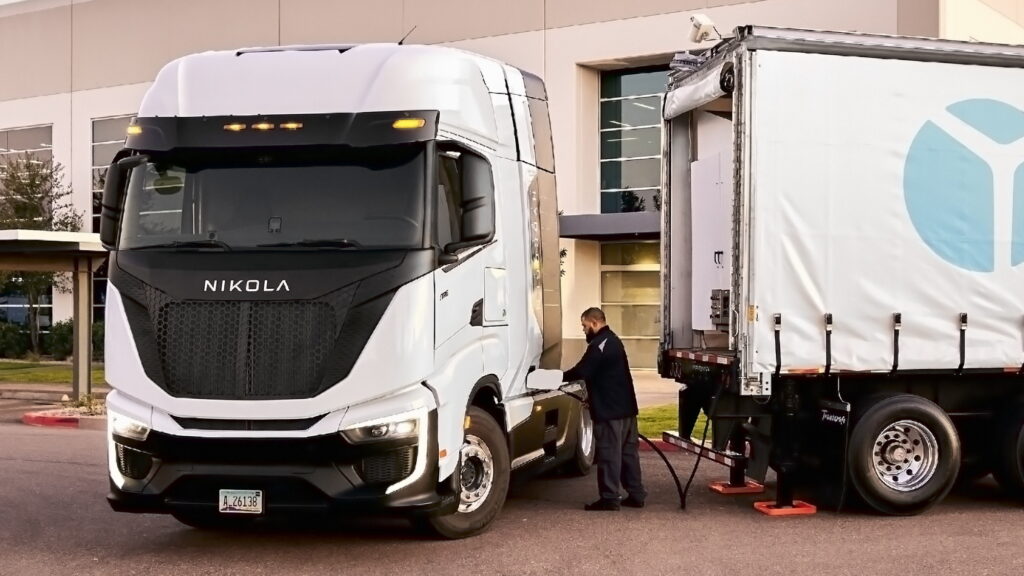–><!—->
As startups looking to make a name in the EV space continue to burn cash and face greater competition from established automakers, investors are getting less optimistic
6 hours ago
 –>
–> 
by Sebastien Bell
–>
The first quarter results are in for a number of high-profile electric vehicle startups, and as predicted, they are underwhelming. Young automakers Lucid, Fisker, and Nikola have all failed to meet investor expectations, as the market for electric vehicles becomes more competitive, and their share prices are suffering.
Lucid’s Sliding Sales
Although Lucid reported an increase of 159 percent in revenues to $149 million for the first three months of 2023 compared to the same period last year, it still failed to meet expectations. Additionally, while the automaker produced 2,314 vehicles in the first quarter, it only sold 1,406 of them.
Taken together, these factors point to cooling demand for Lucid’s sedan, the Air, and investors have noticed. The automaker’s share prices fell 8.3 percent Tuesday, reports investors.com.
Read: Tesla Slashes Prices For The 6th Time This Year, Model 3 Drops Under $40,000

However, despite the underwhelming Q1 results, Lucid still plans to produce 10,000 vehicles this year and ended the quarter with $4.1 billion in total liquidity, enough to carry it through to Q2 2024. Lucid’s executives are optimistic about the approach of the company’s second model, the Gravity SUV.
advertisement scroll to continue
“We continue to grow our brand awareness and I’m proud to say that the Lucid Air was recently awarded a number of prestigious industry accolades,” said CEO Peter Rawlinson. “We will unveil our Gravity SUV later this year ahead of its launch in 2024 and we cannot wait for everyone to experience it.”
Fisker Tries To Get Off The Ground

Fisker celebrated delivering its first vehicle, the Ocean SUV, to customers on May 5th, but the automaker reported in its Q1 financial results that it was cutting production forecasts, indicating troubles ahead.
“Fisker adjusts its annual production forecast to 32,000-36,000 units and expects to produce 1,400-1,700 customer vehicles in Q2, provided all partners deliver,” the automaker said in a statement today. “This adjustment reflects updated homologation timing, supply chain maturity and ramp readiness progress.”
The company’s stock prices fell by about 38 cents per share (or 14.1 percent) following its Q1 financial results, as Fisker continues to dip into its cash reserves. However, with U.S. deliveries starting this month, and 65,000 reservations, there may still be cause for optimism at the young automaker.
Nikola’s EV and Cash Flow Struggles

Losses continued to mount at Nikola. In the first quarter of 2023, the company reported net losses of $169 million, up from $152.9 million in the same period last year. It also announced that it would be halting production of the all-electric Tre tractor trailer.
Read: Nikola Halts Electric Truck Production After Disappointing Sales And $169M Losses In Q1 2023
The decision to pause production of its electric Tre truck was made to upgrade its Arizona plant for work on the hydrogen fuel cell electric version expected to begin in July. However, it was also announced that the electric variant will only be made to order from now on, suggesting sluggish sales. The news resulted in an 11 percent drop in shares on Tuesday.
A Glimmer of Hope for Rivian
Rivian has had a little more time to establish itself than the other three automakers, which may explain why its losses were narrower than expected. The automaker beat revenue expectations ($661 million) in the first quarter of 2023, but it still posted a loss of $1.35 billion. However, that loss was lower than it had been in 2022.
In addition, the automaker announced today that it is on track to reach its production target of 50,000 vehicles this year. All of which was encouraging to investors, and the company’s shares were actually trading four percent higher on Tuesday, reports CNBC.
Sign of the Times
All four automakers were highly regarded when they launched, but they are now experiencing the harsh reality of competing in a market where established automakers are investing heavily in their electric vehicles. Additionally, Tesla, the leading EV startup, is using its profit margins to decrease prices, putting pressure on newer startups. Although the battle may not be fatal for all of them, some companies, like Lordstown are already being forced to consider the possibility of bankruptcy.
Update, May 9, 4:58 p.m.: This post was updated to include Rivian’s Q1 2023 financial results, which only became available later in the day. Certain passages have been modified to reflect the update.

 –>
–> 

